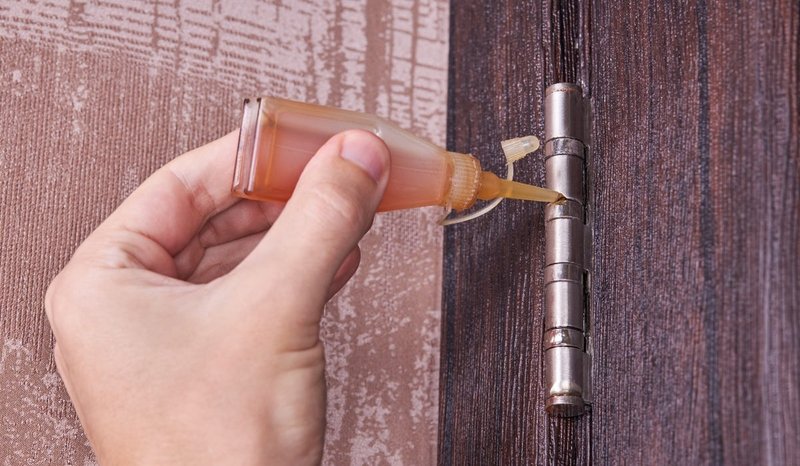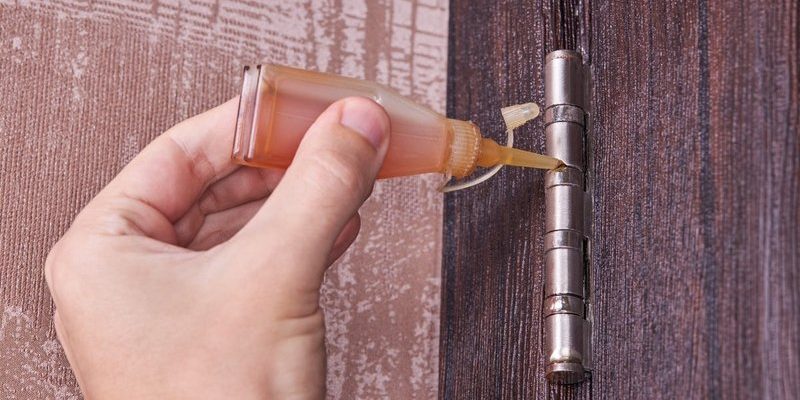
Think of your door hinge as a well-oiled machine. When it’s squeaking, it’s telling you it needs some attention. Just like you’d oil a squeaky bike or tighten a loose screw, your door hinge needs the same consideration. In this guide, we’ll explore why door hinges screech, how to clean them properly, and the best ways to keep them lubricated and functioning smoothly.
What Causes a Screeching Door Hinge?
So, what’s behind that screeching sound? Typically, it’s due to a lack of lubrication or dirt built up in the hinge. When hinges aren’t lubricated, they can become dry. As you open and close the door, the friction between the hinge components generates a screeching noise. It’s almost like your door is begging for some oil!
Another reason hinges make noise is moisture. Humidity can cause hinges to rust, leading to more friction and, you guessed it, more screeching. If you live in a damp area, keep an eye on your hinges. Buildup of dust and dirt can also contribute to those annoying sounds. Imagine trying to move a rusted bike pedal; the same principle applies to your door hinge.
Finally, the type of hinge matters too. Some materials are more prone to squeaking than others. For example, *steel* hinges might rust, while *plastic* or *brass* options tend to be quieter. Understanding these factors can help you address the issue more effectively.
Deep Cleaning Your Screeching Door Hinge
Cleaning your screeching door hinge doesn’t need to be a chore. It’s more like giving your hinge a spa day! Start by removing the hinge from the door. This might sound complicated, but it typically just involves unscrewing a couple of screws. You might need a screwdriver, but you can also use a power drill for faster removal.
Once the hinge is off, it’s time to clean it. Use a cloth or an old toothbrush to scrub away any built-up dirt or grime. You can also soak the hinge in warm, soapy water for about 15 minutes if it’s particularly dirty. After soaking, rinse it with clean water and dry it thoroughly. If you notice any rust, you may want to use some rust remover to get rid of it.
Don’t forget to clean the area where the hinge attaches to the door. Dirt and debris can accumulate there, causing the same issues you’re experiencing with the hinge itself. Wipe it down with a damp cloth and let it dry before reattaching the hinge.
Lubricating Your Door Hinge: The Best Practices
Now that your hinge is clean and ready to go, it’s time for lubrication. This step is critical in preventing future screeching. You can use several types of lubricants, but WD-40 is a popular choice. It penetrates well and helps reduce friction. Alternatively, you can also opt for a silicone spray or even a good old-fashioned machine oil.
To apply the lubricant, hold the can about six inches away from the hinge and spray it directly into the hinge joints. Make sure to get in those little crevices where the parts move against each other. If you’re using oil, a few drops will suffice.
After applying the lubricant, open and close the door several times. This helps distribute the oil evenly. Wipe away any excess so it doesn’t attract dirt. You want a smooth operation, not a greasy mess!
How Often Should You Clean and Lubricate Hinges?
You might be asking, “How often do I need to go through this process?” The answer varies based on your environment. If you live in a humid climate, plan to clean and lubricate your door hinges every few months. Otherwise, every six months should keep things running smoothly.
Keep an eye on the sound of your hinges, too. If they start to screech again, it might be time for a quick touch-up. Honestly, taking care of your door hinges is a small task that can save you from a lot of headaches down the line.
And remember, maintenance is easier than repair. If you neglect squeaky hinges, the friction can damage the hinge over time. This might lead to more serious issues—like needing to replace the entire hinge.
Alternative Solutions: When Cleaning and Lubrication Isn’t Enough
Sometimes, despite your best cleaning and lubrication efforts, a hinge might still screech. If that’s the case, it might be time to think about replacement. Over time, hinges can wear out, especially if they’re made from lower-quality materials.
If you’re considering a replacement, look for high-quality hinges. Brass or stainless steel options tend to last longer than their plastic or low-grade metal counterparts. They might be a bit more expensive, but considering the longevity, they’re often worth the investment.
You could also try using a different lubricant. If your current choice isn’t working for you, there are specialty products designed specifically for door hinges. These include graphite powders and oil-free lubricants that can provide a longer-lasting solution to squeaking.
Final Thoughts on Managing Squeaky Hinges
In summary, a screeching door hinge can be a nuisance, but it doesn’t have to be a permanent problem. By understanding the causes of the noise, you can deep clean and lubricate your hinges effectively. Keeping your hinges clean and properly oiled is simple and can save you from more significant issues in the future.
Regular maintenance will keep your home quieter and make those door-opening moments much more pleasant. So next time you hear that screech, don’t fret—grab your cleaning supplies and get to work. After all, a little effort goes a long way in keeping your home a peaceful haven.
